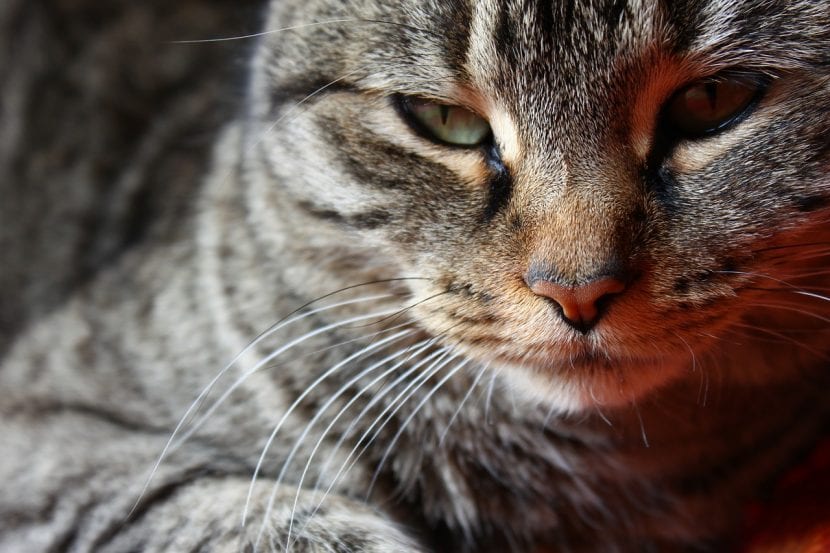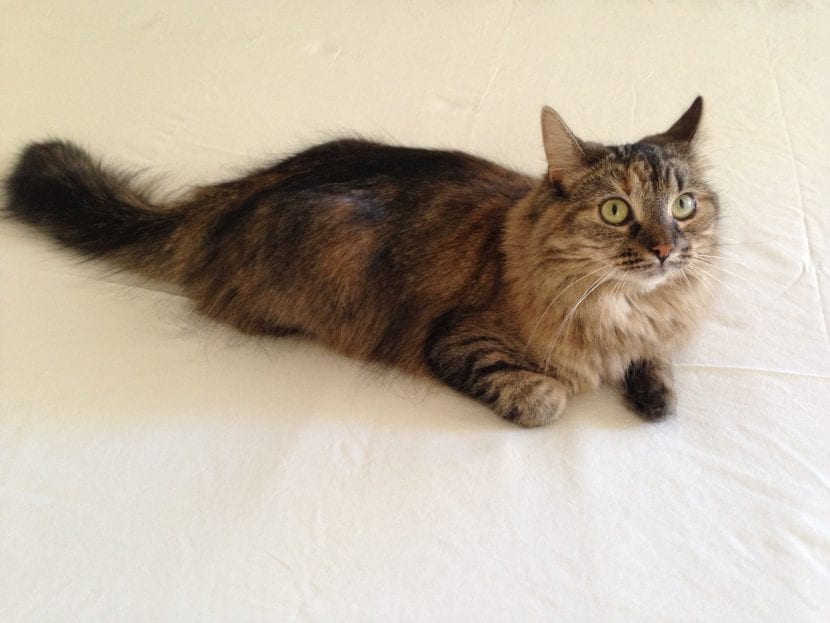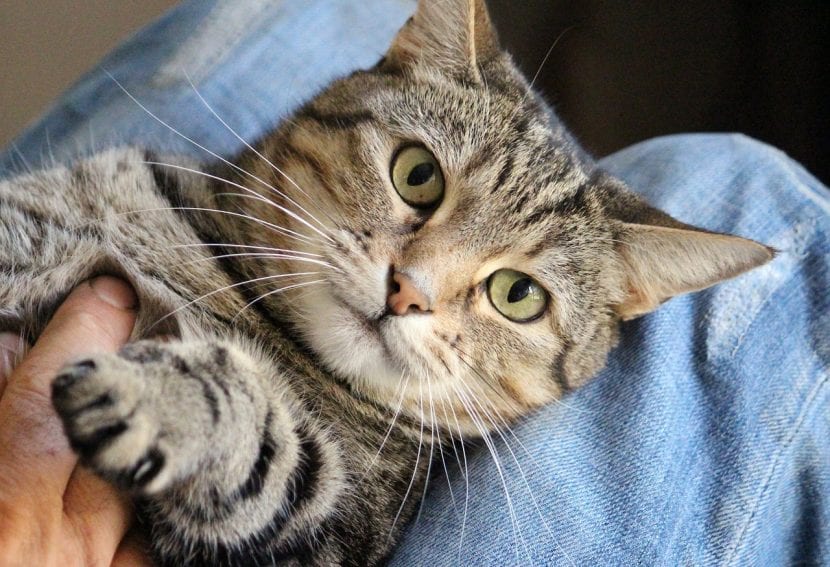
The cat that we have in our homes today has ancestors who had to go a long way to beget it. They went from being in the scorching desert to a safe and quiet place with beings that no other feline has wanted to get close to: humans.
Thus, the felis catus It is the animal that has been the most successful, because as the human population grew, so did the number of dwellings that where a furry one lived that was gradually domesticated. But, When did the domestication of the cat begin?

The domestication of the cat started in Egypt about 4500 years ago. At that time, the ancient Egyptians grew grain and corn and kept them in barns, places where rodents went, who became prey for African wild cats. People liked it so much that they controlled the plague and the cats had "free food" that slowly but gradually a relationship of mutual respect and trust was created between the two species.
But none of this would have happened if African wild cats had not had the courage to approach a much taller and more unpredictable animal such as human beings.

Thanks to the ships and the merchants, cats could reach Greece more than 3600 years ago, the rest of the Mediterranean around 3000 years ago, and all over the world. Always accompanying the human being, doing what these animals do best: hunting rodents and small mammals. That predatory instinct that, to this day, is still very much alive.
The cat. An animal to which, although we can teach things, it will be more those that he teaches us, how to live life at the moment. Much has had to suffer until reaching our days, especially during the Medieval Era. But fortunately now we know that with respect and affection we can have an excellent friend at home.
Dear Monica! Well I turn to you when I have a question about my kitten, you will remember it, a beautiful orange tabby that appeared in my living room…. Well, let me tell you that today I take him to sterilize, but I have doubts, as he is still going out on the street, (last week he left for 2 days) and he returned quite beaten, today I decided to operate him, you will tell me why not , I had done, and I don't know if I'm fine, but I was afraid that when I went out I would not have enough hormones to mark territory and would not be able to defend myself from other cats! I still feel sorry, but I made up my mind because I think there is a possibility that they will stay at home and not go out, since from what I have read they run a lot of risk of illnesses, accidents, blows, please, could you help me so that I can be calm, or telling me the disadvantages and advantages of neutering stray kittens? In other words, there are a lot of the domestics, but of those that we adopt already being street people and that still come out from time to time…. no, and I really don't know if I made the best decision!
Thanks
Hi Clara.
Neutering is always a good decision. This operation can make a cat calm down, but if it needs to defend itself it can continue to do so.
To have their territory controlled, cats mark with their nails, but also with urine. Marking is not only leaving a footprint or a mark, but also leaving its pheromones, which are "messages" that other cats "read" and act accordingly. On this article You have more information.
If you have any further questions, do not hesitate to ask 🙂
A greeting.